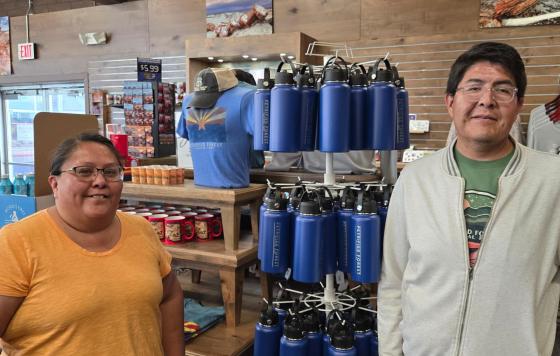
In the past few years, Clean Water Action and compost advocates across the state have campaigned for the state of Maryland to give more support to schools to compost and rescue usable food. In December, the Maryland State Department of Education opened the first round of grant applications to local schools and school systems. Did you miss it? Good news: the grant opportunity has re-opened!
The Maryland State Department of Education has re-launched its School Waste Reduction and Composting Program, and your school can now apply for funds to reduce food waste and turn what remains into valuable compost. Such programs will not only rescue food and enrich our state’s soil but will also divert organic waste from landfills and incinerators. Launching composting programs at schools will also educate students and staff about the importance of environmental stewardship.
Why Should Your School Start Composting?
In 2020, Maryland generated about 774,400 tons of food waste - but only 22% of it was recycled at places like compost facilities. Most of it ended up at landfills or incinerators, creating greenhouse gas emissions and wasting nutrients that could have fed our soils.
School cafeterias produce a lot of food waste, but it doesn’t need to go to waste. If your school applies for this grant and starts composting, you’ll be able to:
- Curb the amount of food waste our schools produce.
- Boost education and awareness about the complex connections between food waste, climate change, the environment, and hunger.
- Support county boards and public schools in the development and implementation of initiatives that effectively prevent, divert, and compost food waste.
- Give students hands-on experience reducing greenhouse gas emissions and fighting climate change.
- Get usable food into the hands of people who need it.
- Include in the criteria needed to meet Maryland Green School application requirements.
What Will this Grant Support?
Awarded grant funds will range between $500 – $8000 and can be used to:
- Provide educational resources and programs for students, parents, and staff.
- Develop infrastructure aimed at measuring and reducing food waste (e.g., share tables and community fridges that divert food waste).
- Establish and maintain a composting program (e.g., purchase compost bins).
- Contract with commercial composters, municipal agencies, or county agencies that are able to recycle in-school organic waste.
How Can Your School Apply?
Applications are due on 3/28/24. MDSE is hosting virtual support sessions on 3/11, 3/18, and 3/20. You can find more details and the application here.
Download this guide as a one-page flyer to share with your school and your community here!


